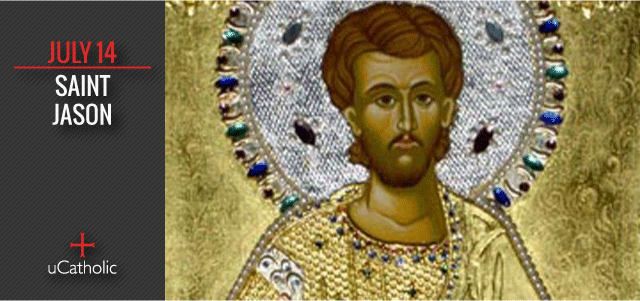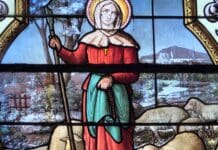While on his second missionary journey, St. Paul stayed at Salonika, in the house of one, Jason. In consequence of Paul’s successful preaching, the Jews, “moved with envy and taking unto them some wicked men of the vulgar sort, and making a tumult, set the city in an uproar; and besetting Jason’s house, sought to bring them out unto the people. And not finding them, they drew Jason and certain brethren to the rulers of the city, crying, ‘They that set the city in an uproar are come hither also, whom Jason hath received. And these all do contrary to the decrees of Caesar, saying that there is another king, Jesus.’ And they stirred up the people and the rulers of the city, hearing these things. And having taken satisfaction of Jason and of the rest, they let them go”.
This is probably the Jason referred to with Lucius and Sosipater as the kinsmen of St. Paul in his letter to the Romans, and in the Greek legend he is represented as bishop of Tarsus in Silicia, going with St. Sosipater, bishop of Iconium, to Corfu, evangelizing that Island, and dying there. After preaching successfully for some time, the two missionaries were thrown into prison, where they converted seven thieves who afterward achieved martyrdom.
The Syrians, however, venerate Jason as the apostle of the district round Apanea and as a martyr who was thrown to the beasts. The Roman Martyrology wrongly identifies him with the Mnason of Acts xxi 16, “an old disciple” with whom St. Paul was to lodge in Jerusalem, and makes Cyprus the place of his death as well as of his birth. His feast day is July 12.

















